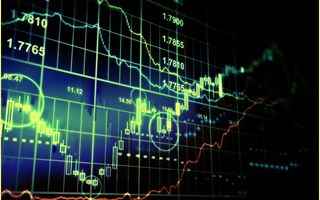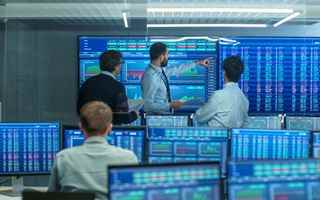(Finance) – The one in Ukraine is there first war in the era of ESG investments, that is, that regulated approach for evaluating companies that put into practice corporate practices that are attentive to environmental, social and governance issues. The management of an “old-school” company usually had only one task: to maximize the value of the company for its shareholders. With the advent of ESG parameters, this is no longer true: different shareholders, stakeholders, governments, etc., have differing views on what is good for the environment, governance or (in particular) society. Starting new oil drilling is useful in a time of energy crisis, but it is certainly not good for the environment. Buying new weapons may seem sensible given the increased risk of Russian aggression against Europe, but it is hardly considered to be truly ESG.
The conflict in Ukraine has opened a discussion onopportunity to review the ESG assessments of some sectors, in particular Defense and Energy, as well as raising criticism that ESG funds invested in companies like Gazprom and Rosneft, or that they otherwise had some exposure to Russia. To understand the impact of conflict on ESG assessments, “you have to understand what ratings they are,” according to Jacopo Schettini Gherardini, Director of the Research Department of Standard Ethics. “Part of these assessments are actually made by funds and banks, or requested by investors directly – he explains – The impact is therefore calculated on the basis of the investment objectives of the clients or those who make the assessment. And therefore we have very varied choices. , with a certain inconsistency or differentiation in terms and methods “.
Some realities have already moved. Just a year after the Swedish bank SEB had adopted a new sustainability policy, which excluded the actions of those who derive more than 5% of their income from the defense sector from their funds, the group made a turn around. From today, April 1st, six funds will be able to invest in the defense sector. SEB said it began reviewing its position in January following the “serious security situation and growing geopolitical tensions in recent months”, culminating in the Russian invasion of Ukraine.

Second Antonio Amendolamanager of AcomeA SGR, “has so far been used a yardstick far too severe and, in some respects, shortsighted in eliminating upstream everything that falls within the defense directly or indirectly (very often some houses also exclude securities with exposure to the defense for minimum amounts of turnover such as 5%) “.” It is different, however, to thoroughly investigate the business model of society and in the way in which they interpret sustainability – he explains – a winning and concrete strategy in terms of sustainability analyzes the company in detail without preconceptions, but trying to understand the how, the if and the why of sustainability “.
The pressure on the sector had been evident for some time. The French company Thales has seen the share of shares held by European investors (outside France) halve since 2016. The CEO of the German Rheinmetall Instead, he said in January that longtime financial partners BayernLB and LBBW have decided to stop doing business with the armored vehicle manufacturer. As evidence that the situation is accelerating is the decision of the Germany to support arms exports to Ukraine and the subsequent investment of 100 billion euros to modernize its armed forces. Additionally, recent polls in Finland and Sweden they showed for the first time a majority in favor of NATO membership.
This could affect managers’ choices, although there are those who doubt that profound changes will come. Taking as an example an investment fund that has chosen to exclude the defense sector, Schettini Gherardini speculates that “clearly with the war it could be more active on the engagement side, because we are facing a greater criticality. However, the definition of how to consider ESG investments remains the basis. There the distinction between ethical choices and sustainability choices is a differentiation that we make, but the market does not. A fund that makes choices of exclusion as in the defense sector is now declared as sustainable. They are ethical and highly respectable choices, but I doubt whether they are sustainable for the UN, the OECD or the EU “.

Another parameter of ESG investments affected by the conflict in Ukraine is the investment horizon. “This situation is putting the ESG system to the test, because the idea of a sustainable investment presupposes a long-term look, while the emergency of war is making some positions vacillate a bit on the reasonableness of investments in fossil fuels or on the sector. defense, “he says Ugo Biggeri, president of Etica SGR. “Our idea is that if you have a sustainability plan, it is not contingent situations that make you change this plan, otherwise sustainability will never come“, adds the president of the asset management company which offers only sustainable and responsible mutual funds.
In addition to the use of sustainability indices and assessments, Etica SGR constantly dialogues with management and exercises voting rights in the shareholders’ meetings of the companies in which its funds are invested to urge companies to behave more responsibly. Biggeri believes the current legislation in the ESG field is all in all satisfactory and clear, even if there is still room for improvement: “From a regulatory point of view, perhaps it would be necessary to have the courage to say that certain investments should be discouraged, a “brown punishing factor” rather than a “green supporting factor”. In other words, we do not need to incentivize sustainable finance, because we are getting there on our own and people will get there more and more, but we must discourage finance that damages the environment and society “.
Another aspect to consider is that, despite the increase in the masses invested in ESG solutions, a true understanding of this world is still lacking, with sustainability perceived as a sort of duty and without grasping its potential for opportunities. “ESG investments fall into the broader category of socially responsible investments (SRI) and these respond to principles that can also have moral connotations: it is sufficient to go back to the birth of this type of investment, which was also linked to religious considerations – he says. Monica Billioprofessor of econometrics at the Ca ‘Foscari University of Venice – Gli ESG investments, however, have a more distinctly financial connotation and in particular they take up the concept of materiality of the ESG dimensions, therefore of riskiness of the same dimensions which, unlike in the past, can now no longer be neglected (and therefore not be taken into account in terms of potential negative impacts / costs, but also of potential opportunity). It is therefore clear that i managers operate with a view to reducing the risks / costs associated with these dimensions“.

Amendola, who manages the AcomeA PMItalia ESG fund, highlights another problematic aspect of the speeches that emerged from the outbreak of the conflict: “When we talk about ESG funds, we often refer to investments in companies with high ESG ratings. This for us has a double effect. weakness: convey funds to companies that need less market support, because they are very often large caps with large budgets and staff to be put at the service of the ESG, and position themselves all on the same titles. This approach leaves out, especially in Italy, the companies that most need market support both in terms of funds and support: SMEs “.
In addition to direct engagement with companies, ESG fund managers primarily use environmental, social and governance assessments made by specialist companies. In the absence of globally unique standards, the agencies that evaluate sustainability have however developed their own ESG definitions, resulting in a significant divergence between ESG ratings. Analyzing the ESG ratings of Sustainalytics, RobecoSAM and Refinitiv for a sample of around 400 European companies in 2021, a research co-authored by Billio showed that the correlation between these ratings is substantially low, with an average correlation ranging from 46% between Sustainalytics and Refinitiv, 52% between Refinitiv and RobecoSAM.
According to the teacher, “the ratings published by the various agencies show disparities in the sense that they can evaluate the aspects of materiality differently and give different weight to the three components (E, S and G). However, if they are analyzed in more detail, they are generally more oriented to dimension E and in this sense alignment is easier It is useful to have specific ratings for the different dimensions to allow informed choices to investors and pay more attention to clear definitions to avoid greenwashing phenomena, which would nullify the very value of ESG investments “.
